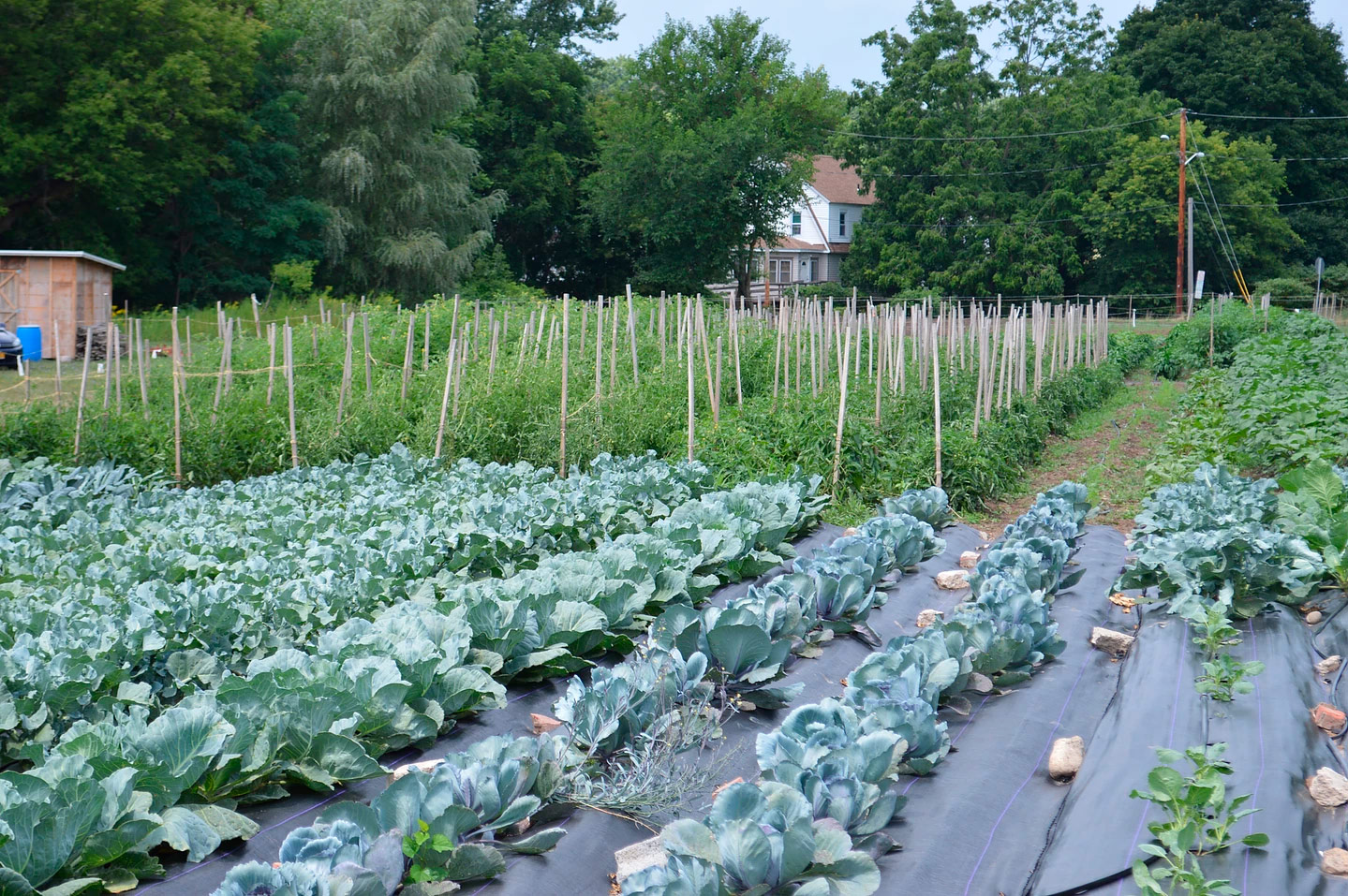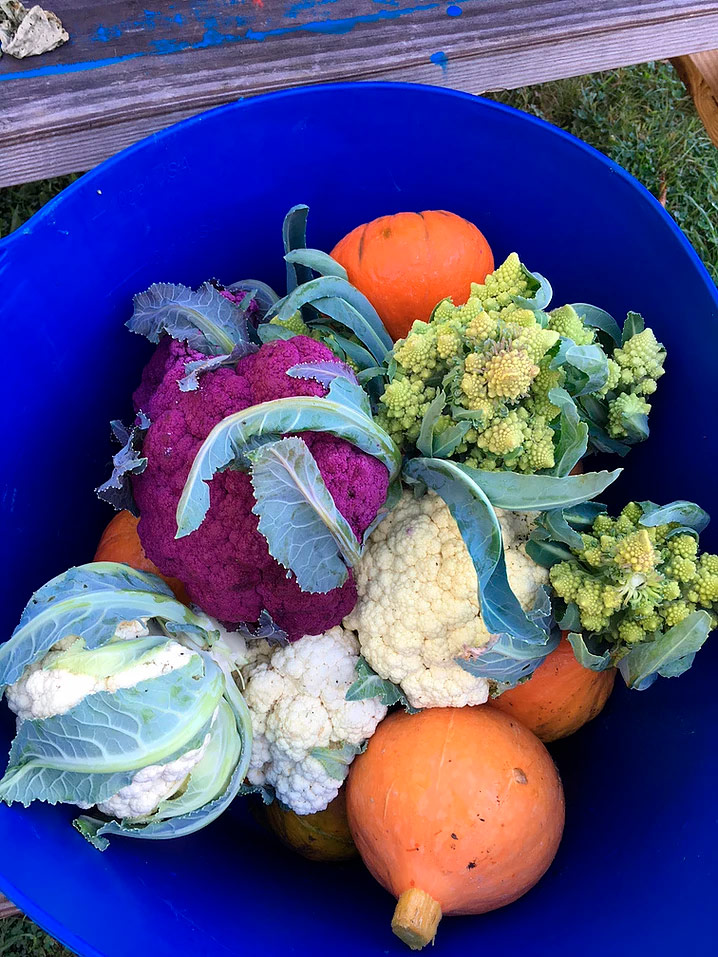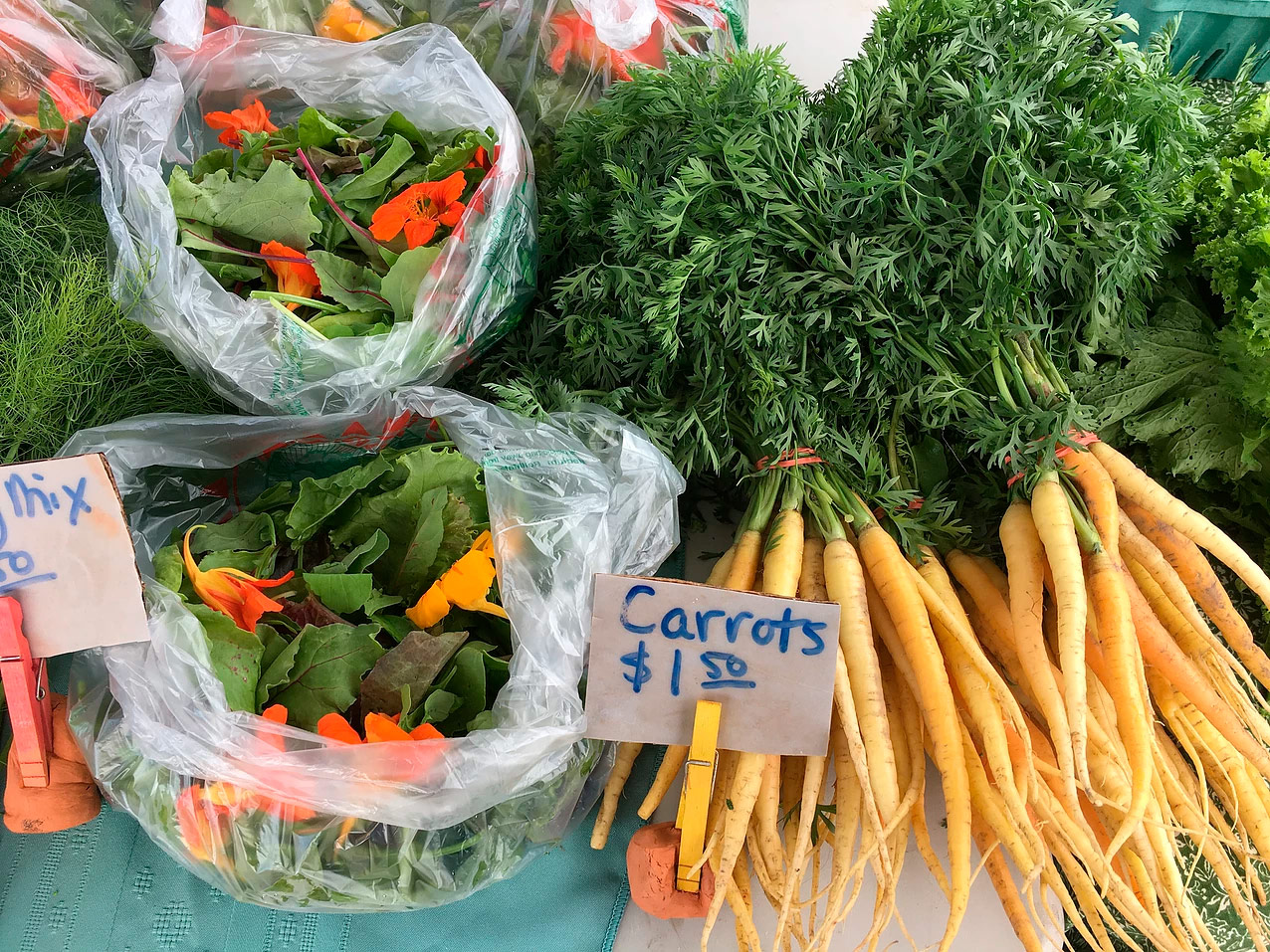Down on the Farm — in the City
By Karen B. Moore
“It’s hard to be healing and feel like a whole person when you’re hungry or you’re not getting adequate nutrition,” said Jessi Lyons MLA ’09, farm coordinator of the Brady Farm in Syracuse.
The farm is a program of the Brady Faith Center, an urban mission on Syracuse’s southwest side. Located between Onondaga Creek and one of its tributaries, the 5.8-acre farm was started in 2016 as an urban farm woven into the fabric of the community to provide sustainable nutritious foods, employment and education that nourishes the body, mind and spirit of community residents, according to the Brady Faith Center website.
“It’s over three miles to the nearest grocery store in this neighborhood,” Lyons said, “so food access is important.” But also important are affordability and quality. “We have about eight corner stores in a quarter mile of where we are. You can get plenty of junk food and, unfortunately, that’s what a lot of folks are doing for just convenience meals — they’re relying on corner store-type foods. So as far as Brady Faith Center is concerned, food access is part of spiritual and physical health.”
Lyons has been a key player in food accessibility in Syracuse since 2008 when she came to ESF for her master’s degree in landscape architecture. Her capstone focused on community gardens. After earning her degree, she worked for Cornell Cooperative Extension in Onondaga County as a natural resources program coordinator and continued to be involved in food accessibility and urban agriculture issues. She was instrumental in starting several programs to help urban gardeners, including Southwest Community Learning Farm and Syracuse Grows, a nonprofit network that provides advocacy and support for existing community gardens and urban farms.
She consulted on the Brady Farm project when it was in the planning stages. “There was interest in creating a larger urban farm and I was giving
advice and consultation early on,” she said. Once they secured the land, administrators at the Brady Faith Center offered her the job of farm coordinator.
Lyons noted some people expect the farm to be a picturesque landscape with weed-free, neat rows. But the facility doesn’t always meet people’s expectations of what a farm looks like. “I tell people, ‘No judgment. We’ve been here four years, we’re organic and we didn’t know what we were doing.’ It’s hard sometimes.”
“The reality is organic farming as a nonprofit is expensive and hard. We can’t afford labor and there are going to be weeds because you can only do so much,” she said. The farm staff has an ESF influence. In addition to Lyons, it includes Farm Manager Alice Gallagher ES ’12 and dedicated volunteer Thomas Mackey, a graduate student in environmental interpretation. The staff uses numerous sustainable practices including cover crops, minimal tilling and natural pest management. “Some people complain that we have a lot of weeds, but what might look like a weed is actually a cover crop or it’s left there intentionally because it’s a pollination period for a certain insect that is beneficial or helps with pest management,” Lyons said. “I use our newsletter as a platform for education.”
For example, Lyons wants people to know that the farm balances its pest management to promote ladybugs because they, in turn, help control aphids that can damage plants. “If we take care of our ladybugs, they will take care of our aphids,” she said.
Food raised at the farm is sold at a variety of outlets including an on-site farm stand and a booth at the Regional Market on Saturdays. The farm also offers summer and winter Community Supported Agriculture (CSA) boxes.
“About 20 percent of our produce gets donated,” said Lyons. “It might be to a neighbor or other community pantries or organizations. Some people get directed donation boxes through our CSA program.”
Part of the farm’s mission is being sensitive to people’s food dollars. The weekly CSA newsletter includes information about what’s in the latest box and how to prepare it. The newsletter also provides tips on growing produce in Central New York and educates its audience about the challenges of farming. “It’s helping people understand some of the underlying principles of organic farming that might not be obvious,” Lyons said.
“Part of food access for us is growing things that people want to eat. One of my standard lines is we don’t grow kohlrabi because nobody knows what to do with kohlrabi. I might love it and it might be an amazing vegetable but if people don’t know how to eat it, it’s a waste of their money,” she said.
The farm is also focused on workforce development. “We employ people who don’t necessarily have the best skills and education. Or they might also have other life limitations that involve substance abuse or mental health or just the difficulties of living in poverty,” Lyons said. “There are a lot of untapped resources in our community — a lot of great people who aren’t put into leadership positions because life is complicated, so we want to give those folks opportunities.”
Lyons maintains a strong connection with ESF. This past fall, students helped with seasonal chores during the October Saturday of Service, pulling up old eggplant and tomato plants. Students have done capstones on sustainable agriculture, and Dr. Timothy Volk ’02 of the Department of Sustainable Resources Management has a research plot on the farm to study the use of shrub willow for mulch and how different mulch applications can improve compacted soil.
Tucked in a back corner of the farm is a nature classroom situated on a migratory pathway. “This little woody spot is like a bird haven,” Lyons said.
When Dr. Stewart Diemont of ESF’s Department of Environmental and Forest Biology visited, Lyons told him about the bald eagles they often see at the farm. As if on cue, an eagle flew overhead.
“We’ve got all this foraging habitat, and there’s shelter, woods and water, so this is a really sweet little migratory path. This is an opportunity we want to grow. This is where I want ESF students to go make something happen” said Lyons.
Karen B. Moore is editor of ESF Magazine.




